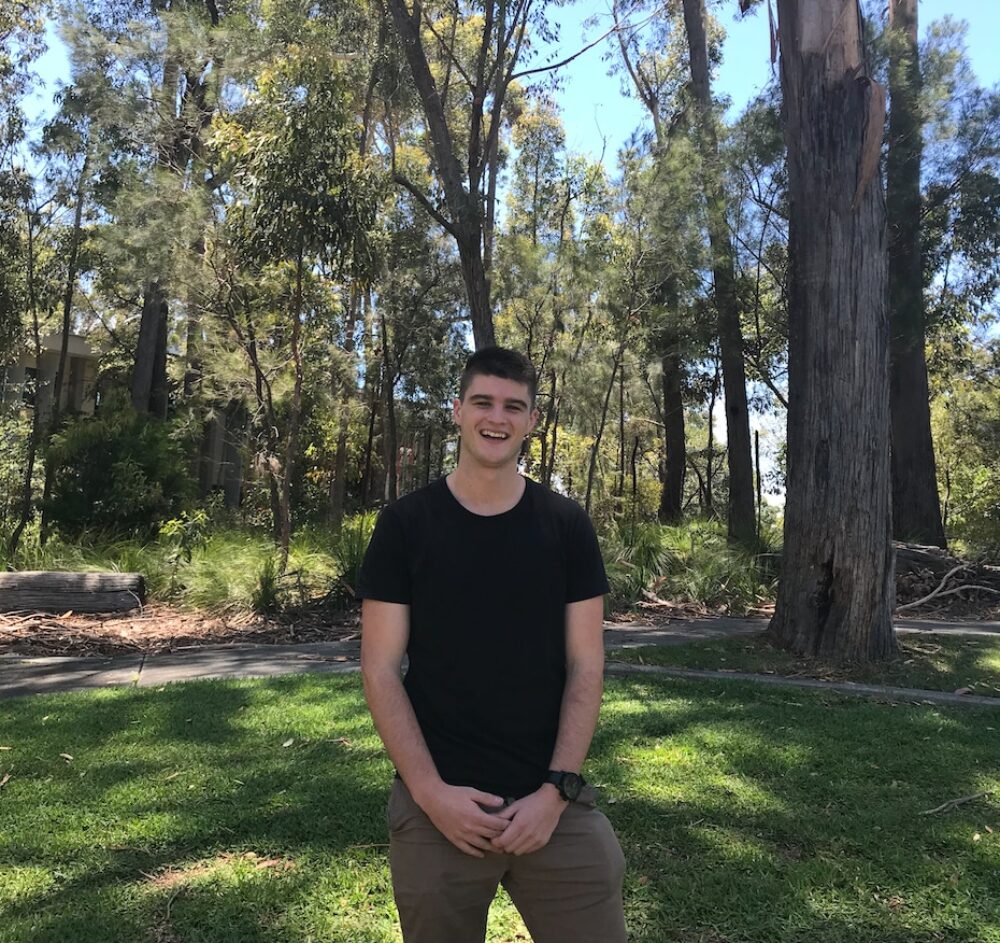 When leaving high school Cameron Press decided he wanted to help people by creating medications and attended his local university, the University of New England (UNE), to study the Bachelor of Science (Honours). However during his degree Cameron realised that creating medicines wasn’t his path. “I didn’t really enjoy lab work,” he says, “I missed the human interaction. I thought that making medicines would help people, but I didn’t really get that feeling in a laboratory.”
When leaving high school Cameron Press decided he wanted to help people by creating medications and attended his local university, the University of New England (UNE), to study the Bachelor of Science (Honours). However during his degree Cameron realised that creating medicines wasn’t his path. “I didn’t really enjoy lab work,” he says, “I missed the human interaction. I thought that making medicines would help people, but I didn’t really get that feeling in a laboratory.”
Having heard good things about Griffith from family and friends Cameron applied for the Master of Pharmacy degree, however once starting his Masters Cameron realised there was another career shift in his future. “When starting my pharmacy degree I assumed I would get my degree, go back home and own a pharmacy,” he says, “However working in the field I no longer want to own a pharmacy, as the business aspect doesn’t appeal to me, despite enjoying community pharmacy at the moment. Through my Master’s degree I’ve really enjoyed the research element and some opportunities have presented themselves for the path of health researcher. I now see myself ending up in academia, as I’ve always had an interest in teaching as well.”
Cameron has his internship organised and is working with his professors to accommodate his research and internship simultaneously, as he has created a research project that he is hoping to supervise and continue his journey in health research. Speaking on the difference between his Bachelor and Masters Cameron advises, “In a Master’s they assume you know what you’re doing, but if you say you don’t there is a wealth of support to fill in any knowledge gaps, whereas in your Bachelors there’s this feeling that you’ll get around to it. The support that I received at Griffith to ensure my foundation was set was phenomenal and I cannot fault any of the staff. I know that if I walk into the pharmacy building the staff will always have time to connect and that’s not always the case at a Bachelor level, in my experience.”
That closeness carries through to his cohort as well, as the Master of Pharmacy course is kept to a smaller intake, and Cameron says that encouraged a ‘leave no man behind’ mentality that saw his class studying together to help each other succeed. One piece of advice that Cameron would offer to anyone wanting to study their Master of Pharmacy is to go into it with an open mind. “I went in so sure of what I wanted to do,” he says, “I had that cliché idea that a pharmacist was just someone who dispensed medicine and I’ve discovered it’s so much more than that, there are so many different ways to help people. The relationships you build at university and within the community are something that is taken to the next level with your Masters, which is such a cool part of doing further study.”



